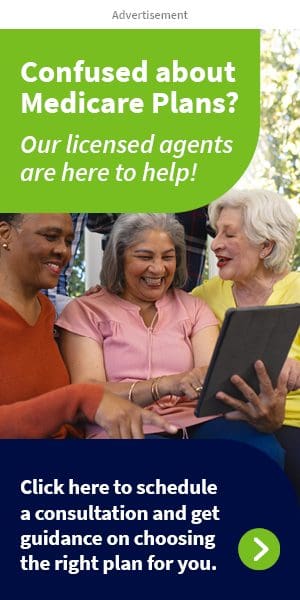Key Takeaways
-
The most effective Medicare resources aren’t flashy websites or advertisements—they’re the official, time-tested tools and community-based services you can actually count on.
-
Using the right Medicare help sources can save you time, reduce mistakes, and ensure you get the most from your benefits without being misled by sales pitches.
Start with the Basics: Official Medicare Sources
When you’re looking for help with Medicare, start where the program itself begins. The Centers for Medicare & Medicaid Services (CMS) offers a range of tools and resources that are free, unbiased, and reliable.
Medicare.gov
This is the official U.S. government site for Medicare. It’s where you:
-
Enroll in Parts A and B (if you didn’t do so automatically)
-
Compare Medicare Part D drug plans
-
Search for Medicare Advantage (Part C) plans
-
Download your “Medicare & You” handbook
-
Track coverage and benefits
1-800-MEDICARE (1-800-633-4227)
This helpline is available 24/7 and is staffed with trained agents who can:
-
Explain enrollment periods
-
Help you compare coverage options
-
Check if a service is covered
-
Answer questions in over 150 languages
Medicare & You Handbook
Mailed to you each fall, this handbook outlines your benefits for the upcoming year, including changes to premiums, coverage rules, and plan options. It’s updated every year and remains a dependable reference.
Get Help in Person: State Health Insurance Assistance Programs (SHIP)
SHIPs are one of the most underutilized but most effective resources available to you. Every state has a SHIP, and they offer:
-
Free, personalized Medicare counseling
-
Help with billing questions and appeals
-
Assistance understanding Medigap, Part D, and Advantage plans
Most SHIPs are operated through your state’s Department of Aging or Insurance. Appointments can be made by phone, video, or in person, depending on your location.
Tap Into Your Community: Area Agencies on Aging (AAA)
These local agencies support older adults with a wide range of services, and Medicare help is one of them. AAAs can provide:
-
Referrals to local SHIP counselors
-
Seminars and workshops about Medicare changes
-
Help coordinating Medicare with Medicaid or veterans’ benefits
They are a solid choice if you’re looking for hands-on support without having to navigate federal websites alone.
Library and Senior Center Programs
In 2025, many public libraries and senior centers are stepping up to meet community health needs. These institutions often host:
-
Medicare information sessions during enrollment periods (October 15–December 7)
-
Free Medicare basics workshops throughout the year
-
Guest speakers from SHIP, AAAs, or CMS
You may also find printed materials and workbooks that walk through scenarios and choices at your own pace.
Avoid Overwhelm: Know What to Ignore
You’ll encounter hundreds of ads, brochures, and flyers—especially around enrollment time. Many of these come from private insurance companies. Here are a few red flags:
-
Any resource that tries to push you toward a specific private plan
-
Promises that sound too good to be true (like coverage for everything at no cost)
-
Representatives who aren’t clearly identified as licensed agents
Stick with sources that prioritize education and decision support, not sales.
Don’t Overlook Your Pharmacy or Doctor’s Office
Healthcare providers aren’t just there for checkups. Many have staff trained in benefits coordination or social services who can help you:
-
Review prescription coverage changes
-
Find out if your provider accepts certain types of Medicare plans
-
Coordinate care if you have complex conditions or are dually eligible (Medicare + Medicaid)
Use Medicare Plan Finder Strategically
The Plan Finder tool on Medicare.gov is regularly updated and reliable. In 2025, it includes the latest data on:
-
Part D prescription costs
-
Plan star ratings
-
Network providers
To get the most out of it:
-
Use your Medicare number to log in for personalized results
-
Check formularies to ensure your medications are covered
-
Compare annual costs, not just monthly premiums
Keep Track of Changes: ANOC and EOC Letters
If you’re already enrolled in a plan (Part D or Medicare Advantage), the Annual Notice of Change (ANOC) and Evidence of Coverage (EOC) documents are essential.
-
ANOC arrives by September and details changes to your plan for the upcoming year
-
EOC outlines what your plan covers, what you pay, and how it works
Reading these ensures you won’t be caught off guard by rising costs or benefit reductions in January.
Know the Timelines That Matter Most
Understanding Medicare’s critical windows can prevent coverage gaps and penalties.
-
Initial Enrollment Period (IEP): 7 months around your 65th birthday
-
General Enrollment Period (GEP): January 1–March 31 (if you missed IEP)
-
Open Enrollment (AEP): October 15–December 7 (plan changes allowed)
-
Medicare Advantage Open Enrollment (MA OEP): January 1–March 31 (one plan change allowed)
You can also qualify for Special Enrollment Periods (SEP) triggered by events like moving, loss of coverage, or Medicaid eligibility.
Review Your MyMedicare Account Regularly
In 2025, more Medicare beneficiaries are using online accounts than ever before. Your MyMedicare account helps you:
-
Track claims and Part B services
-
View your deductible status
-
Store digital copies of your Medicare card
It also lets you update contact info and preferences, which is critical for receiving time-sensitive notices.
Technology That Makes It Easier
Not all tech is complicated. Some simple apps and tools can make Medicare easier to manage.
-
Medicare App: Official mobile app to review coverage and track claims
-
Telehealth platforms: Let you connect with Medicare-approved providers from home
-
Medicare Blue Button: Lets you securely share your data with caregivers or apps you trust
These aren’t gimmicks. They offer real convenience without selling you anything.
Medicare Doesn’t Have to Be Complicated
Medicare can seem overwhelming, but it doesn’t have to stay that way. The key is using trustworthy, low-hype resources that are truly designed to help. You don’t need flashy promises—you need tools that work.
If you’re unsure about your choices or want extra help, speak with a licensed insurance agent listed on this website. The right guidance now can save you years of confusion and unnecessary cost.










